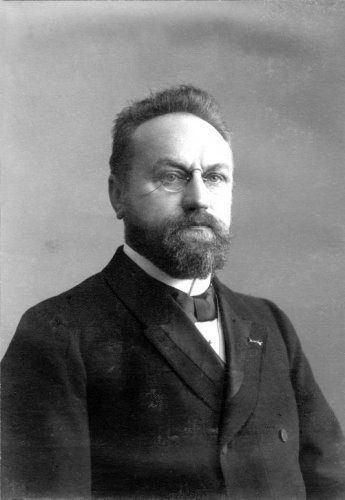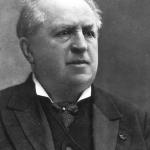Yesterday I blogged about Abraham Kuyper’s political program, drawing on Jordan Ballor’s article for Religion & Liberty The Faithful Christian and the Politics of the Tao.
But what struck me most from the article was a quotation from Herman Bavinck (1854–1921), another Dutch Reformed theologian who worked with Kuyper in the Anti-Revolutionary Party. He urges Christians seeking to reform society to begin by reforming themselves. He makes an excellent point, but I have some reservations.
Here is what he said (my bolds):
All good, enduring reformation begins with ourselves and takes its starting point in one’s own heart and life. If family life is indeed being threatened from all sides today, then there is nothing better for each person to be doing than immediately to begin reforming within one’s own circle and begin to rebuff with the facts themselves the sharp criticisms that are being registered nowadays against marriage and family. Such a reformation immediately has this in its favor, that it would lose no time and would not need to wait for anything. Anyone seeking deliverance from the state must travel the lengthy route of forming a political party, having meetings, referendums, parliamentary debates, and civil legislation, and it is still unknown whether with all that activity he will achieve any success. But reforming from within can be undertaken by each person at every moment, and be advanced without impediment.
That’s good advice for Christians concerned about the state of their country. Political activism is fine, but that takes time and involves working with groups and institutions that are outside of your immediate control. In the meantime, start with yourself.
Here is the base level of “subsdiarity,” the most immediate sphere over which we have at least a measure of “sphere sovereignty”: our own sweet self.
Are you worried about the state of the family in America? Work on your family.
Are you concerned about the decline of marriage? Make your marriage really strong.
Are you worried about young people, the decline of education, and the prospects for the next generation? Equip and build up your own children.
Are you dismayed by the fruit of the sexual revolution? Stay away from pornography and check your own fantasies.
Are you frustrated with the polarization and mutual hostility of our online and political discourse? Be civil in your own conversations and interactions.
Do you think social media has become toxic? Get off social media.
The principle applies across the political spectrum. Are you worried about the environment? Watch your own consumption. Do you want world peace? Cultivate peace in your own relationships. Do you have a heart for the poor? In addition to demanding the government do something about the plight of the poor, help actual poor people in your own community with your money and service.
To be sure, though, some issues are social in nature, beyond the reach of individual improvement. Still, there might be ways we can start with ourselves. Being pro-life? Fixing the economy? Addressing transgenderism? Challenging big tech and other corporations? I would welcome your ideas about how we could personalize these and other issues.
Having said all of this, though, in support of Bavinck’s exhortation, I have some reservations about it. I suspect that with the best intentions, our efforts at personal “reformation” will fall short or fail spectacularly. Calvinists get a lot of criticism for their doctrine of “total depravity,” but I think their doctrine of sin is not nearly pessimistic enough. They can easily imagine that they can fulfill God’s Law. Thus, despite their commendable emphasis on God’s grace, in practice they often end up being quite law-oriented.
One way this manifests itself is in the Reformed tradition’s interest in reforming not just the church, but society as well. In many ways, this is commendable–the society certainly always needs reforming–but Calvinists are sometimes too confident about the extent to which they can reform it.
Actually, Bavinck’s exhortation demonstrates why social evils are so intractable: because they ultimately rest on each person’s “heart and life.” Our hearts and lives are sinful and unclean. We are not sovereign over our own sphere because our wills are in bondage to sin. This is true not only of unbelievers–Calvinists strongly agree with Lutherans about that–but it is also true, in a different sense for Christians. Our hearts and lives constitute a sphere not of firm resolution but of conflict between the Holy Spirit and our fallen human nature. And often our fallen human nature has its way. This is why, in the words of the Catechism, we are to “consider [our] place in life”–that is, our earthly vocations– “according to the Ten Commandments” and then every Sunday we confess that we are “sinful and unclean.” Whereupon we are absolved by the pastor’s word of the Gospel.
Bavinck talks about “reformation,” a term of great significance for both Calvinists and Lutherans. But the Reformation was not about solving social problems through a new political order but about bringing the church back to life through faith in Christ. The Reformation was a recovery of the Gospel of Jesus Christ, who atoned for our sins by His death and resurrection. That Reformation, though “good and enduring,” did not begin “with ourselves,” but with the grace of God, and it did not take ” its starting point in one’s own heart and life,” but in the gift of Jesus Christ.
And so it is today. The Reformation of our hearts and lives can only happen by and through the Gospel of Christ. Faith in the free forgiveness granted by Christ does transform us, and it does bear fruit in good works, and as we struggle against our sinfulness with the help of the Holy Spirit, we are increasingly sanctified, but in a process that never ends until the death of our flesh and our reception into our everlasting life. Meanwhile and to make that happen we continually need Christ–not just at our conversion, or our election before the foundation of the world, but constantly–hearing the Word of the Gospel again and again, receiving Christ over and over in Holy Communion, all to increase our faith and to keep it alive and fruitful.
As for our lives in the world, God places us in vocations, which are multiple spheres in which we can live out our faith in love and service to our neighbors, spheres that also require us to bear the Cross in trials and sufferings, driving us to an ever-greater dependence on Christ and deepening our faith.
These vocations include our citizenship, and this entangles us in politics and the affairs of our nation. Here too we are to love and serve our neighbors and bear our crosses. Kuyper, Bavinck, and other Christians can give us some ideas about how we can do that. But we should have limited expectations.
I actually think Kuyper and Bavinck would agree with me that Christians must always keep the Gospel of Christ–not a social gospel–central. In fact, the slogan of their Anti-Revolutionary Party was this: “Against the Revolution, the Gospel!” Properly understood–after all, the Gospel is itself a kind of revolution–that’s not a bad maxim.
Photo: Herman Bavinck by Atelier Prinses – http://proxy.handle.net/10648/6a24ebd0-1ad9-102f-a76c-003048944028, Public Domain, https://commons.wikimedia.org/w/index.php?curid=4249272













